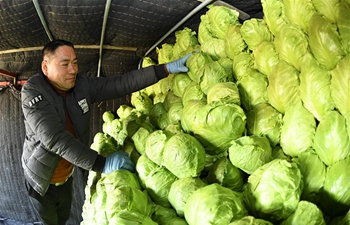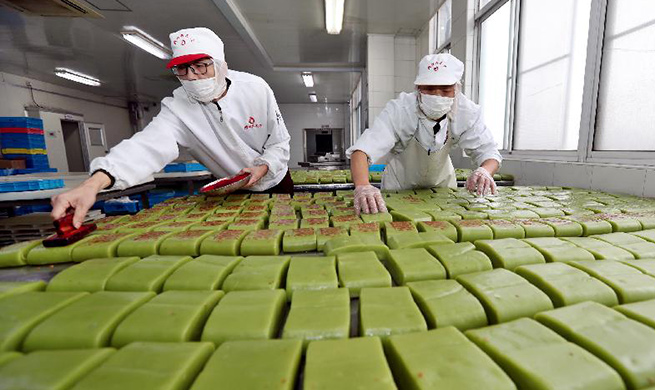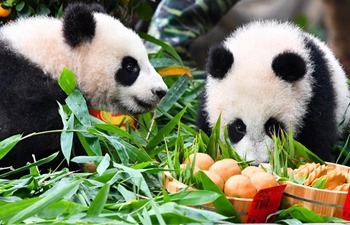by Alessandra Cardone
ROME, Jan. 31 (Xinhua) -- The African swine fever (ASF) epidemic spreading through some Asian and European countries has made good biosecurity practices more crucial than ever, a top official with the United Nations Food and Agriculture Organization (FAO) has said.
"The African swine fever virus is very resistant, and can stand very cold and very warm temperatures," FAO Chief Veterinary Officer Juan Lubroth told Xinhua in a recent interview.
The virus is not dangerous for human beings, but is highly contagious in swine populations -- though spreading relatively slowly -- and is lethal for almost any wild or domestic pigs infected.
"The most crucial thing in this context is to create awareness, alert people on good practices, and make sure pig production is done in the safest way possible," Lubroth said.
Many good practices for biosecurity are strongly recommended for producers and governments to confront the ASF epidemic.
"For example, a key rule is for a farm to be surrounded by two fences separated by a gap, in order to keep wildlife and domestic animals separated," the official said.
"That is because -- unlike flu -- the ASF virus does not fly across the fence, it needs direct contact between an infected pig and a susceptible one to be transmitted."
Another good practice is the "all-in-all-out" method. It means that any new stock would enter the farm together and be kept confined at once. The animals would be brought to markets only when they have reached a certain weight or age.
This would avoid a constant movement of pigs in farms, which is a major risk factor, the official said.
Raising scavenging pigs is still the most common production system in the world, which has posed a major risk since pigs can easily get in contact with contaminated food waste or infected animals.
Non-proper disposal of food waste from international airports and ports, and movement of people and animals in trans-boundary informal trade are other common routes of transmission.
"To know where this informal trade takes place, and to understand what the value chains are, is very important in order to be aware of the risks," Lubroth said.
"If we import from an ASF virus-free country, our regulatory authorities should ensure this is true, and this specific partner has the necessary vet system to correctly detect a problem," the official said.
"If we import from a country that does not have a strong vet service, then we should check the product the moment it comes in, relying on our authorities in order to see if it is virus-free," he added.
China could play a major role in raising awareness across Asia, for it has economic and human resources and a developed research system some other Asian countries lack, according to the FAO.
"With a good neighbor policy, and through initiatives such as South-South Cooperation and (the) Belt and Road (Initiative), China has opportunities to promote safe trade, food safety and a responsible use of natural resources," Lubroth said.













